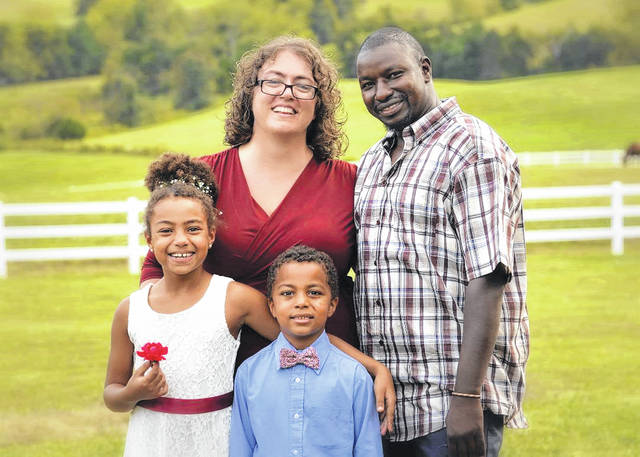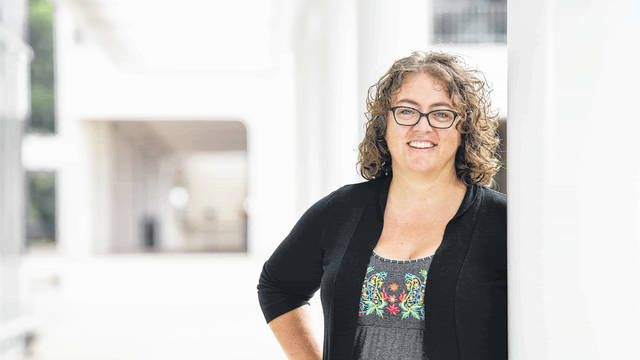CLEMSON — Before Rachel Lang-Baldé’s first trip to West Africa in 2002, she never knew anyone who had died in childbirth. However, reality outside the U.S. would hit hard during her almost four years spent in Guinea as an English teacher and consultant with community health and education organizations. Lang-Balde would come to know many mothers who wouldn’t survive to hold their own child or even hear their first cries.
One of those mothers became a close friend of Lang-Baldé’s, a doctor in Guinea named “Mama” Condé, who practiced medicine along with her husband, Dr. Alhassane Condé. She died during childbirth, and although Lang-Baldé attributes Condé’s death to a lack of health care access, they often talked about doing research that would help shed light on the effects of Guinean culture and beliefs on birth outcomes and maternal health. Both Lang-Baldé and Condé agreed that firmly held cultural beliefs are often just as deadly for an expectant mother as proximity to a hospital or access to a trained birth attendant.
Lang-Baldé returned to the U.S., started a family and earned a master’s degree in public health, but the goal of returning to Guinea and pursuing the research she and Condé discussed so often never left her. Once Lang-Baldé began work on her Ph.D. in international family and community studies through Clemson’s youth, family and community studies department, the focus of her research was obvious.
“Ever since she died, this research has gone from interest to passion for me,” Lang-Baldé said. “I know if she was still here she’d be right alongside me contributing her wealth of cultural and medical knowledge, and our conversations have defined many aspects of this research.”
In January, Lang-Baldé will travel to Guinea with her husband and two children to begin the extensive research made possible by the Fulbright Research Award granted to Lang-Baldé in spring 2017. She has spent the fall semester working on the first chapters of her dissertation and setting methodology. She also has to pack research essentials, namely an eight-year-old, a five-year-old and a supportive husband.
The Fulani people make up the largest ethnic group in Guinea, and Lang-Baldé’s research will target their cultural beliefs and practices. The mixed methods research will explore the relationship between cultural practices and positive birth outcomes by employing a participatory survey with traditional birth attendants and interviewing women of childbearing age.
Unlike most public health approaches, Lang-Baldé will use qualitative research methods to examine the culture from the bottom up. She said this approach will allow a more nuanced understanding of culture through the women’s voices and perspectives on cultural norms and taboos that may affect birth outcomes.
“No matter what culture you’re researching, people usually aren’t receptive when someone tells them what they’re doing isn’t helping them,” Lang-Baldé said. “It’s hard for them to accept that a cultural practice is harmful if they’ve been doing it for generations.”
Lang-Baldé will be guided by the theoretical approach of Dr. Madeleine Leininger, a nurse anthropologist who established a transcultural, ethnonursing theory called Culture Care Theory of Diversity and Universality. The three action or decision modes in the theory include culture care preservation/maintenance, accommodation/negotiation and repatterning/restructuring.
On a basic level, Lang-Baldé will seek to divide aspects of culture into three categories: those that hurt, those that help and those that cause no benefit or harm. Nutrition or food taboos, gender roles, religious practices and even superstitions are but a few of the topics that Lang-Baldé expects to uncover through her research.
However, she understands that once she begins speaking to women, some or all of these topics might be seen as trivial, while other unforeseen issues might take center stage. Lang-Baldé understands that she’s embarking on a journey that will be slow, and she knows that she can’t create change all by herself by simply providing a list of “do’s and don’ts” to the Fulani women of Guinea.
According to Lang-Baldé, what she can do as an outsider is listen to the women’s voices, offer support and share her results with the greater community and members of the Guinean government’s maternal health ministries. She can help facilitate education and awareness that might encourage change. The results won’t be generalizable, but her hope is that the methodologies will be; the ideal outcome would be that her work could be replicated across Guinea or in other regions of sub-Saharan Africa in the future.
“Any successes in areas like maternal health and mortality aren’t accomplished by one person; successes are accomplished by the women and the communities themselves,” Lang-Baldé said. “Maybe my role is just helping a community of women appreciate that there are things they can do to decrease death, disability and the overall negative impact these things can have on them, their families and their communities.”


